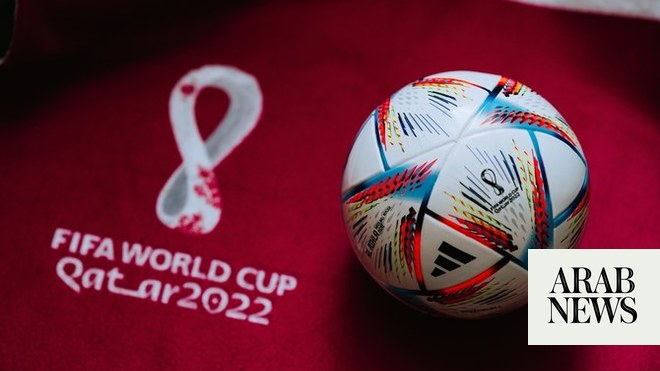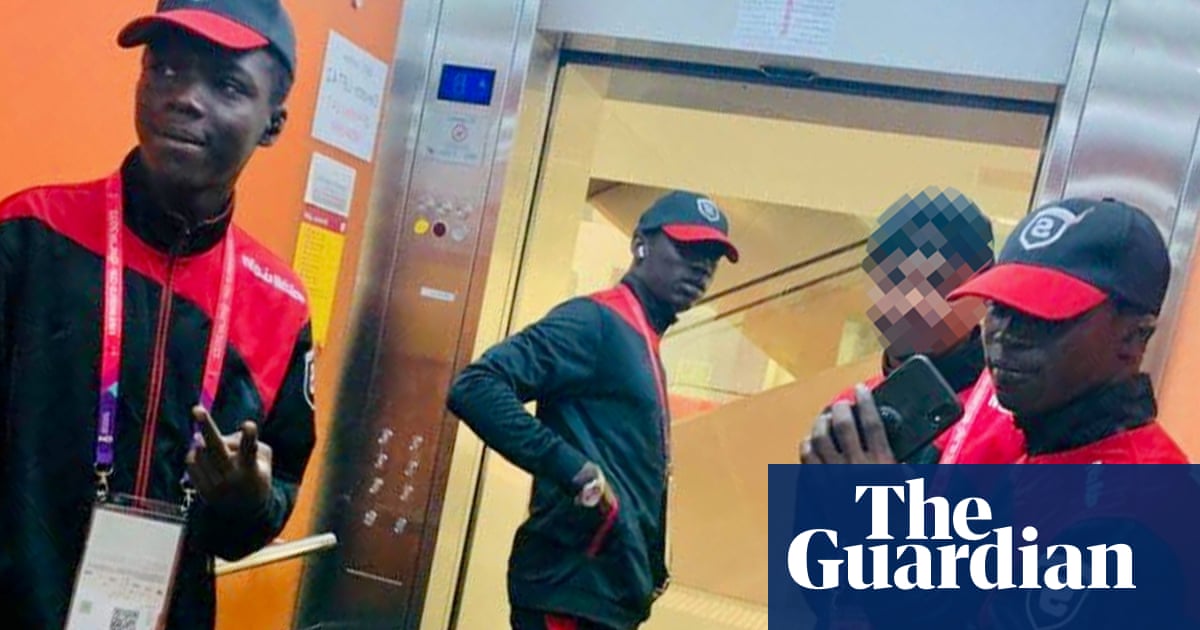
Hundreds of former employees of Stark Security Services had their contracts terminated early
Many were deported after trying to negotiate with company
LONDON: Three men who worked as security guards during the FIFA World Cup in Qatar remain in jail five months after the conclusion of the tournament over a dispute about their contracts.
Shakir Ullah and Zafar Iqbal, both from Pakistan, and an unnamed Indian colleague were allegedly jailed for six months and fined 10,000 Qatari riyals ($2,746.5) each after remaining in Qatar when their employment was terminated three months early by local firm Stark Security Services.
Hundreds of their colleagues, all foreign nationals who were also laid off early, attempted to dispute the contract breach, but were told to collect their final salary, vacate their accommodation, and if they refused, were detained and deported.
Ullah, Iqbal and their colleague were the only former Stark Security employees who remained behind.
The situation of the three men was ascertained by human rights group Equidem, which interviewed an additional 43 people formerly employed by Stark Security as part of its investigation.
Its director, Mustafa Qadri, told The Guardian, which verified his group’s findings: “This is the true cost of FIFA’s reckless disregard for the rights of people who help them generate huge profits.”
World football’s governing body had promised the Qatar World Cup would mark a change in human rights and employment situations for people in the Gulf state.
The Guardian, though, spoke to nine former security guards among those to lose their jobs. Of those, four of them were deported for disputing the termination of their contracts.
The paper was given access to copies of their six-month contracts, which promised monthly wages of 2,700 riyals in return for seven-day working weeks, food and accommodation. The contracts stipulated a notice period of “six months post date of joining.” Qatari law states contracts that are terminated early require a one-month notice period.
One former security guard from Kenya, identified as “Jacob,” said: “When they needed you, they treated you well, but now they are done with you, you are nothing to them.”
Another Kenyan, identified as “Patrick,” added: “They say it was the most beautiful World Cup, but at the end of the day we just lost everything.”
One man from Pakistan said: “We went to Qatar to earn money and make a better life for our family, but the company and authorities cheated us. We felt so helpless.”
Jacob said many of the security guards had attempted to negotiate with Stark Security Services, but the company said they were no longer needed after the World Cup concluded in December.
He said: “We told them we’re still willing to work. We have not failed you in any way, we have not committed any crime. If you wish to stop (employing) us, you have to compensate us for these three remaining months.
“They kept coming to the accommodation and threatening us, banging on our door so we would leave.”
Around 200 Stark employees hired buses to travel from their accommodation to the company’s headquarters on Jan. 23, but they were arrested after staff called the police. They were then deported within a week, without the additional wages for the remainder of their contracts.
Jacob said he partly blamed the Qatari government for his fate. “Nothing happens without its knowledge,” he said. “We should have gotten our rights if the Qatar government had cared.”
Another former guard, from Ghana, blamed football’s world governing body, saying: “FIFA made big money ($7.5 billion) from the World Cup, and we deserve our share.”
A Qatari government spokesperson told The Guardian that Stark Security Services had broken labor laws in the Gulf state and would face legal repercussions, but added that “a resolution was swiftly reached between the company and its employees, whereby the workers were remunerated in full for their services and their contracts were concluded in accordance with their specified terms.”
The spokesperson added: “Qatar does not arrest or deport workers for seeking to resolve their employment disputes. The rights of all individuals working in Qatar are upheld and protected through the fair and just application of legal due process.”
FIFA referred The Guardian to an earlier statement, saying it “seeks to facilitate discussions at host country level, to explore available options for remedy.”
Stark Security Services did not respond to requests from the paper for comment.












